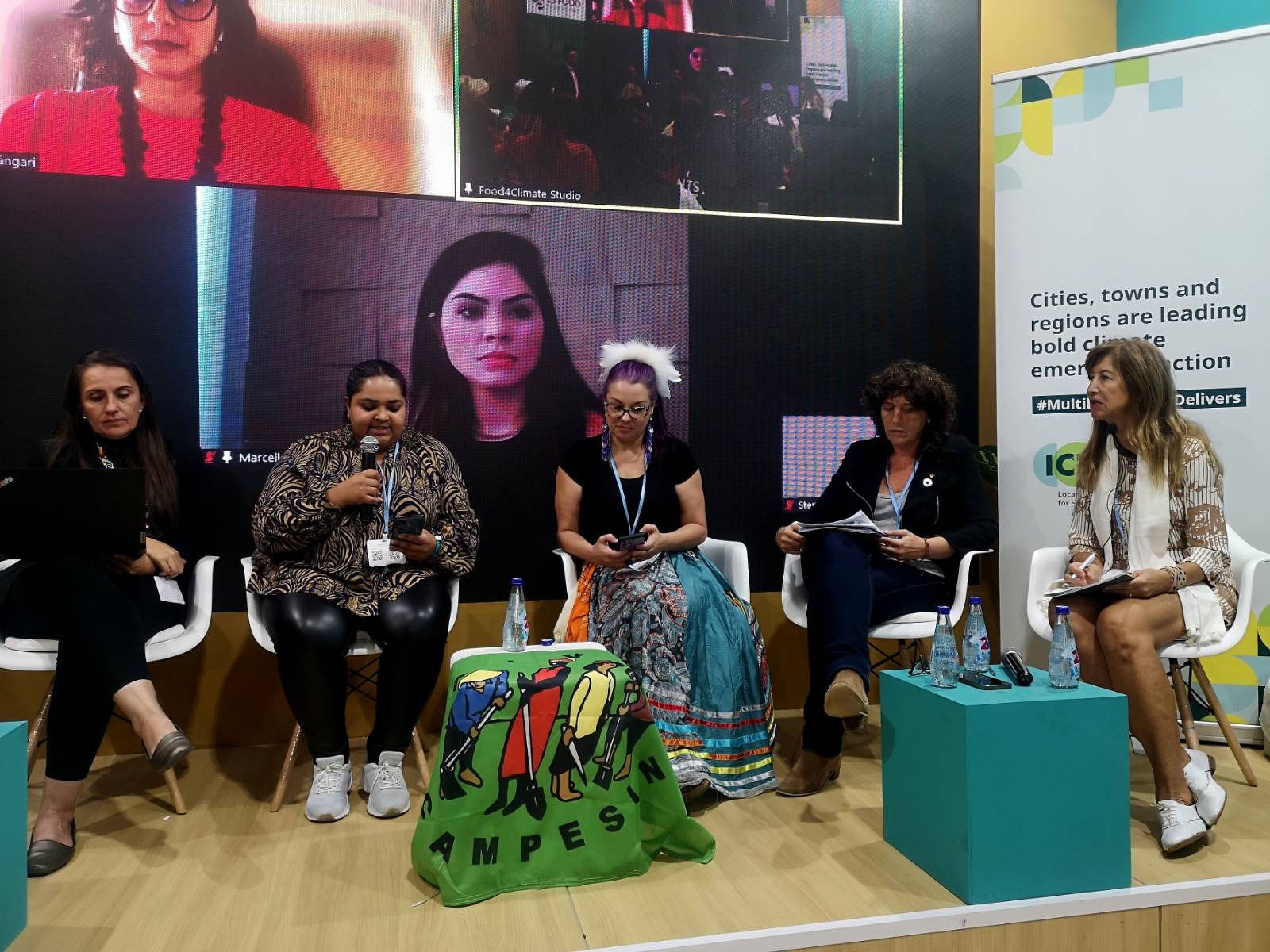Sharm el Sheikh, Egypt – A small delegation of peasants and Indigenous peoples from around the world have gathered in the Egyptian Sinai under the banner of La Vía Campesina for the annual United Nations climate change conference. Small-scale food providers have long understood that the industrial food system is a leading polluter that has not only fueled the climate crisis, but is also responsible for land and water grabbing and other forms of extractivism that separates people from their territories.
At its first official speaking engagement of COP27, La Vía Campesina reiterated that food systems change starts with land. “Corporations and governments have profited enormously from stolen land and theft of water,” said Celeste Smith, an Indigenous seedkeeper from National Farmers Union, LVC member in Canada, on a panel organized by IPES Food to explore how governance operates from the local to the global level. “If we don’t recognize that as our common foundation, we will never emerge from these cycles of crisis,” she added. “Feminist agroecology is a solution that addresses those root causes, and as La Vía Campesina, we are putting it into action every day in diverse settings and in different ways across the globe.”
Communities of women, peasants, and Indigenous peoples have always been at the frontlines of climate chaos, but are also its agents of change. La Vía Campesina holds no illusions about the balance of power in racialized and capitalist spaces like the COP, but we are still committed to showing up and building stronger alliances. Those are being further solidified as we share space with one another and with our allied movements, promoting real solutions from food sovereignty to implementing the United Nations Declaration of the Rights of Peasants and Other People Working in Rural Areas. And because of this, we are excited to continue to strategically engage in this critical space over the coming days in Egypt.

